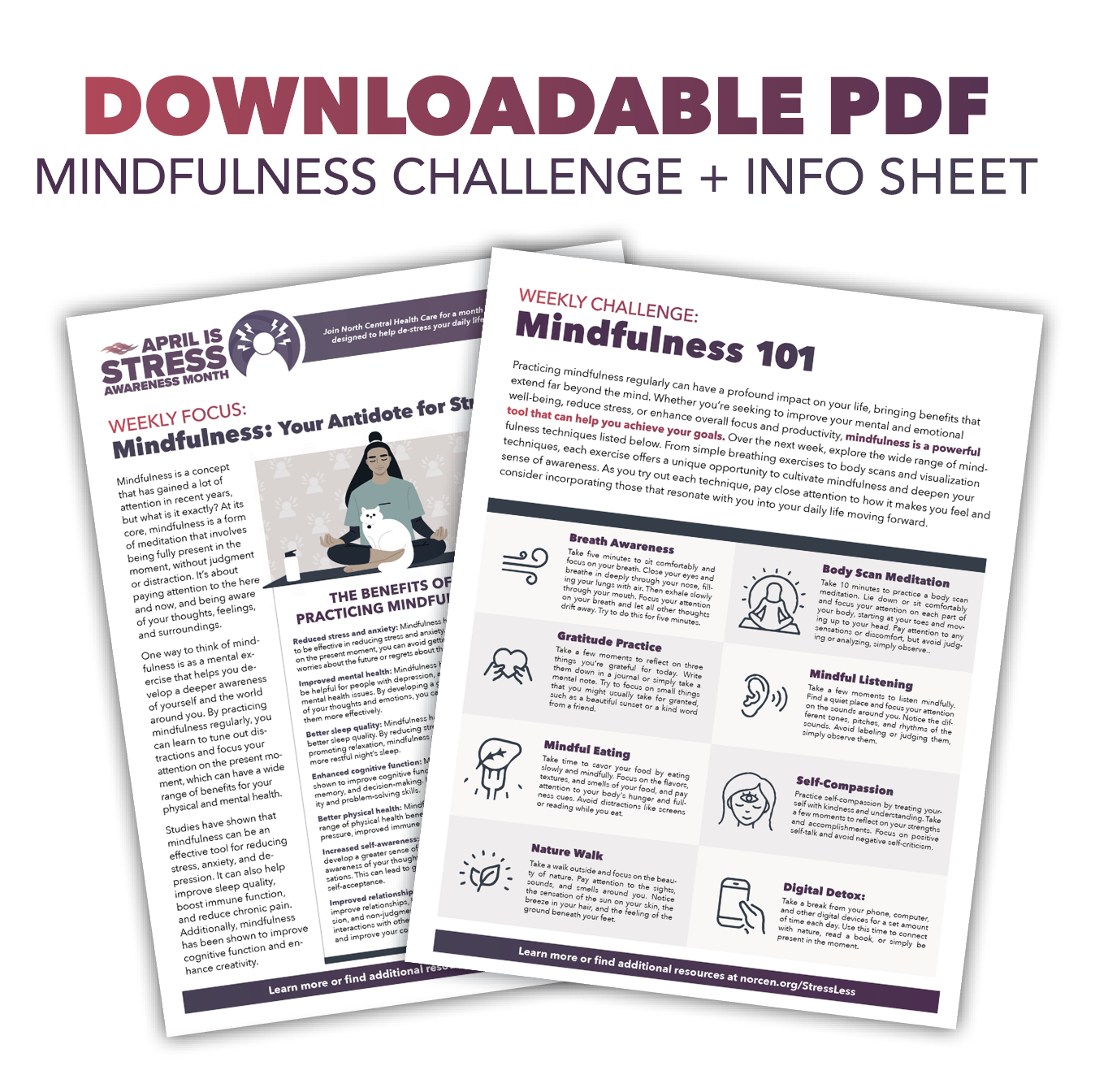Week Two: Mindfulness
Mindfulness:
Your Antidote for Stress and Chaos
Mindfulness is a concept that has gained a lot of attention in recent years, but what is it exactly? At its core, mindfulness is a form of meditation that involves being fully present in the moment, without judgment or distraction. It’s about paying attention to the here and now, and being aware of your thoughts, feelings, and surroundings.
One way to think of mindfulness is as a mental exercise that helps you develop a deeper awareness of yourself and the world around you. By practicing mindfulness regularly, you can learn to tune out distractions and focus your attention on the present moment, which can have a wide range of benefits for your physical and mental health.
Studies have shown that mindfulness can be an effective tool for reducing stress, anxiety, and depression. It can also help improve sleep quality, boost immune function, and reduce chronic pain. Additionally, mindfulness has been shown to improve cognitive function and enhance creativity.
Mindfulness is a simple but powerful practice that can profoundly impact your overall well-being. Whether you’re looking to reduce stress, improve your mental health, or become more present daily, mindfulness is worth exploring.
So, how can you practice mindfulness? You can try many different techniques and exercises, but the key is to find what works best for you and make it part of your regular routine. Check out our mindfulness worksheet, available for download here, for some of the most simple and common ways to start incorporating mindfulness into your day.
Practicing mindfulness can have a wide range of benefits for your physical, mental, and emotional well-being.
The Benefits of Practicing Mindfulness
Reduced stress and anxiety: Mindfulness has been shown to be effective in reducing stress and anxiety. By focusing on the present moment, you can avoid getting caught up in worries about the future or regrets about the past.
Improved mental health: Mindfulness has been shown to be helpful for people with depression, anxiety, and other mental health issues. By developing a greater awareness of your thoughts and emotions, you can learn to manage them more effectively.
Better sleep quality: Mindfulness has been linked to better sleep quality. By reducing stress and anxiety, and promoting relaxation, mindfulness can help you get a more restful night’s sleep.
Enhanced cognitive function: Mindfulness has been shown to improve cognitive function, including attention, memory, and decision-making. It can also enhance creativity and problem-solving skills.
Better physical health: Mindfulness has been linked to a range of physical health benefits, including lower blood pressure, improved immune function, and reduced pain.
Increased self-awareness: Mindfulness can help you develop a greater sense of self-awareness, including awareness of your thoughts, feelings, and physical sensations. This can lead to greater self-understanding and self-acceptance.
Improved relationships: Mindfulness can also help improve relationships, by promoting empathy, compassion, and non-judgment. By being more present in your interactions with others, you can deepen your connections and improve your communication skills.
